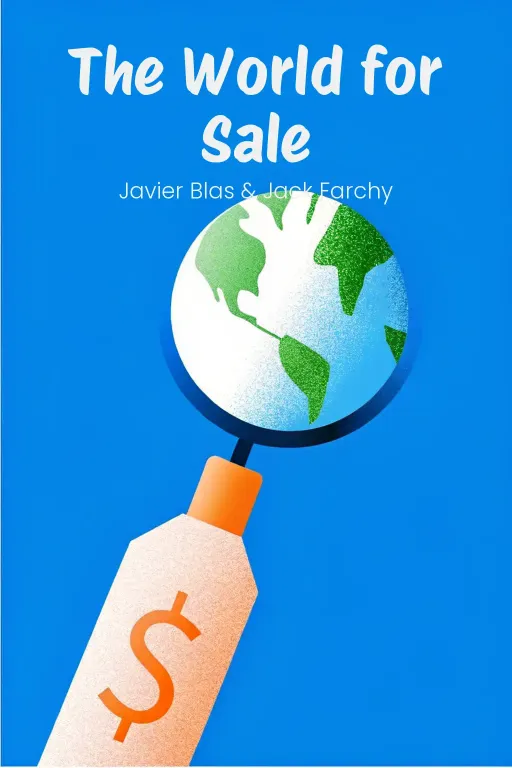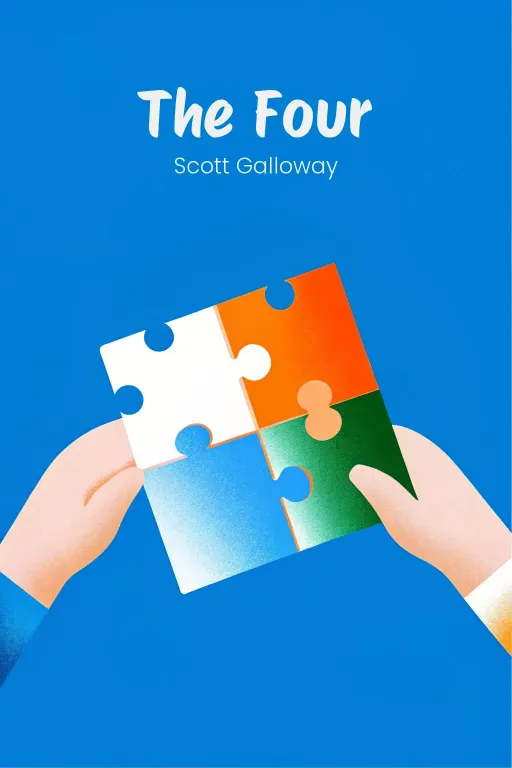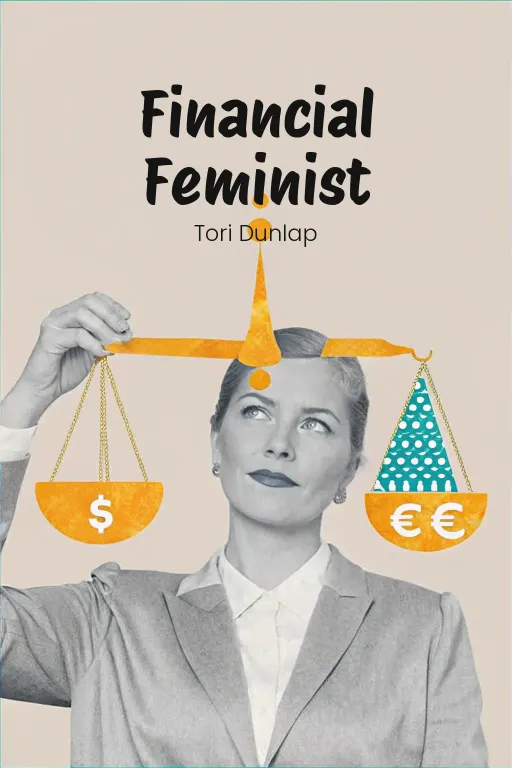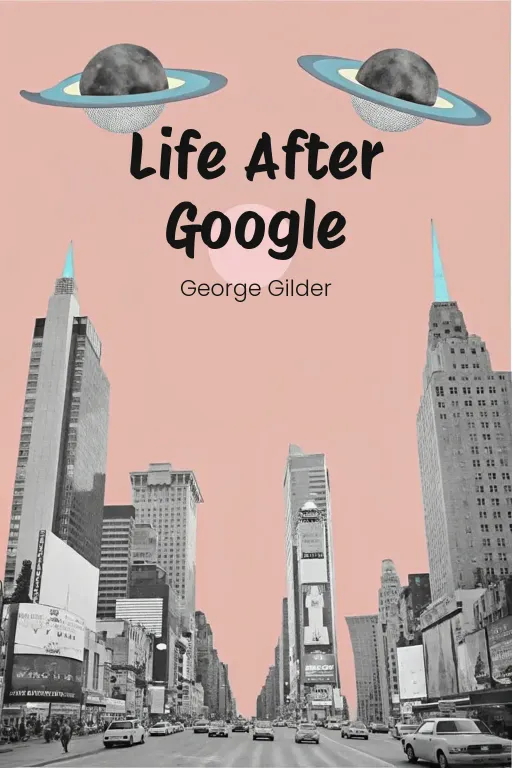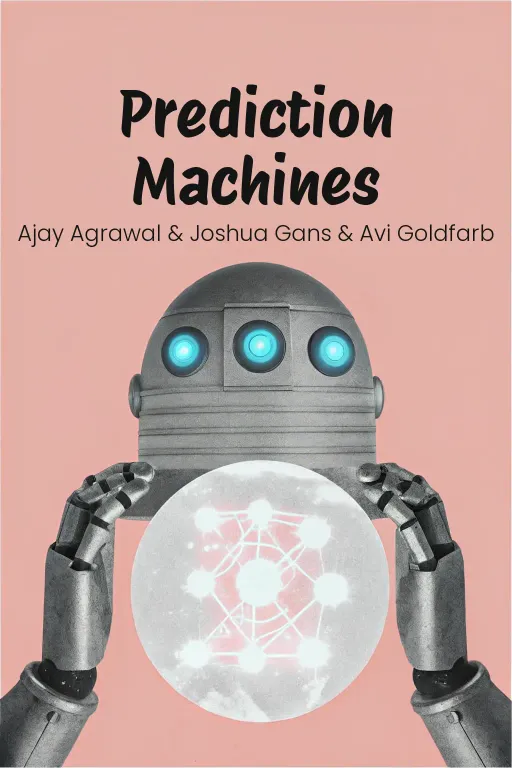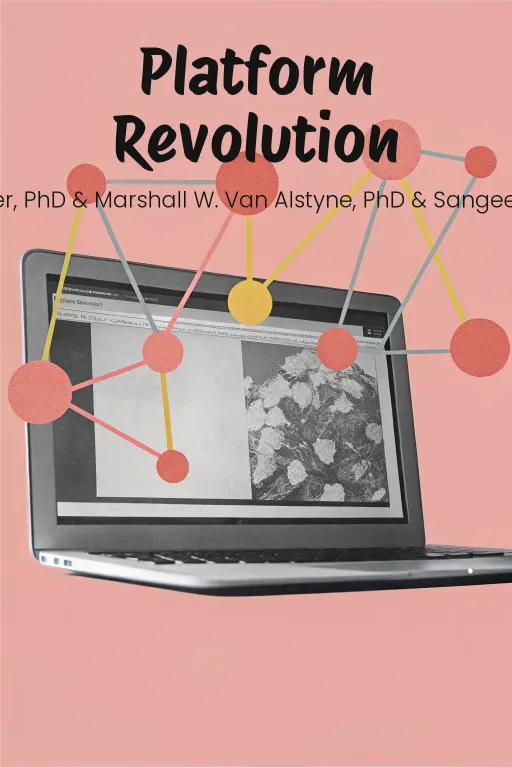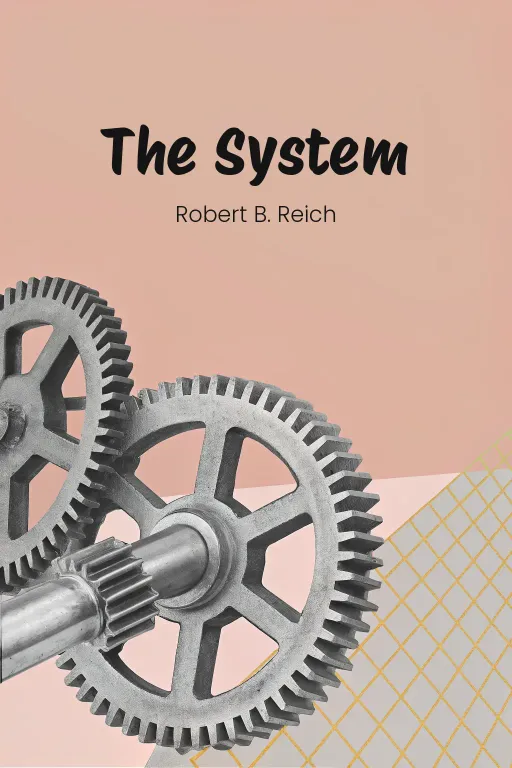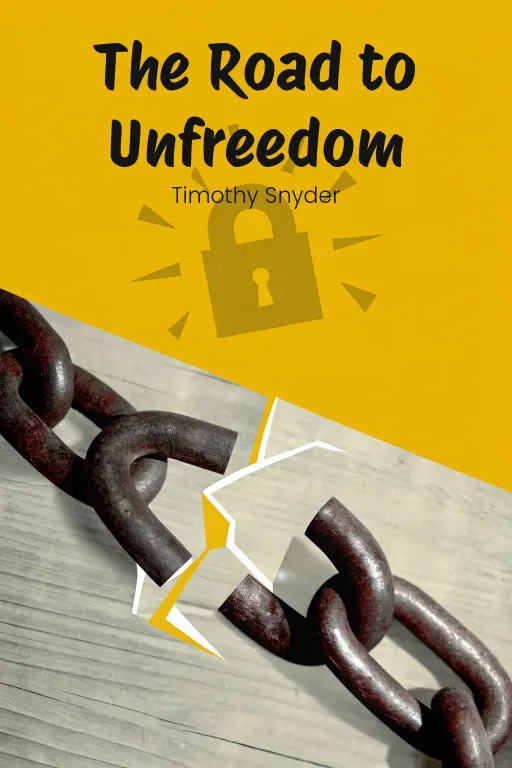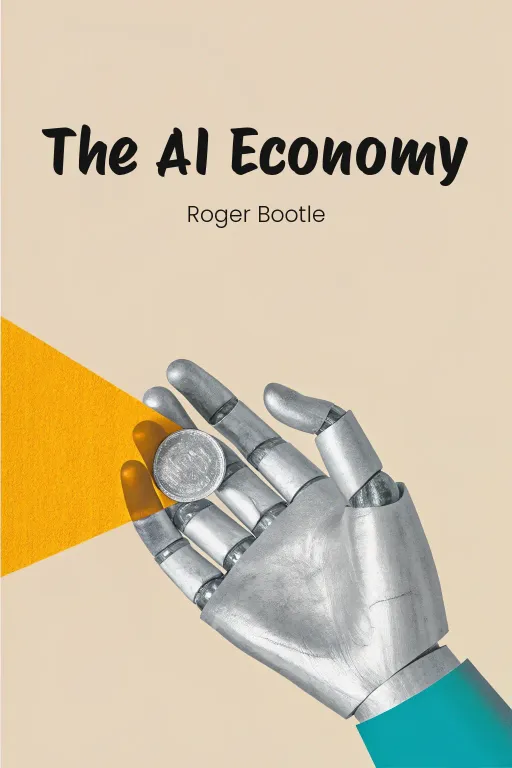
Deficits: Friend or Foe?
Podcast by Let's Talk Money with Sophia and Daniel
Modern Monetary Theory and the Birth of the People's Economy
Deficits: Friend or Foe?
Part 1
Daniel: Hey everyone, welcome back! Today we're jumping into a topic that might sound a bit scary at first—government deficits. But trust us, by the end of this, you might just see them in a whole new light. Sophia: Exactly! When people hear "deficit," they probably picture maxed-out credit cards, impending financial disaster, or politicians dramatically asking, "How are we going to afford this?!" You know? Daniel: Right! So, Stephanie Kelton, an economist, challenges that in her book “The Deficit Myth”. Using Modern Monetary Theory, or MMT, she argues that countries like the U.S., who control their own currency, aren't limited financially the same way we are. Sophia: So, if Kelton's right, we're saying the government isn't like my personal finances after a few too many delivery orders, huh? Daniel: Precisely! Kelton argues the U.S. government can't actually, like, "run out" of money the way you or I can. Instead of obsessing over spreadsheets, we should focus on tackling unemployment, inequality, and climate change. Deficits then potentially become a powerful tool for addressing these. Sophia: Okay, so we're essentially debunking some deeply ingrained economic myths today. What’s the first one we’re going after? Daniel: We’re tackling three main myths. First, we'll explain why governments and households don't work the same financially, plus how it's normal for governments to spend more than they earn. Second, we’ll look at how deficits can actually fuel prosperity instead of causing a crisis. And third, we’ll talk about how changing our perspective allows us to invest better in our people and our planet—not just balance the budget. Sophia: So it sounds like we’re ditching the old economic handbook for a new playbook that actually helps everyone. I'm in, Daniel. Let's do it.
Monetary Sovereignty and Government Spending
Part 2
Daniel: Absolutely. So, let's dive right in with the first big myth: the idea that “governments need to live within their means,” just like households. It sounds logical enough on the surface, doesn’t it? Families have to earn, save, or borrow before they spend, and too much debt can lead to trouble. But this analogy “really” falls apart when we're talking about a sovereign government like the U.S. Sophia: Hold on a sec—"sovereign government"? Let's make sure everyone's on the same page. What exactly does that mean? Daniel: Good clarification. Sovereign governments are those that issue their own currency. The U.S. government, for example, issues the dollar. It doesn't need to "earn" dollars before it spends them because it creates them. A family, on the other hand, can't just print money to cover expenses—unless they're running a very creative side hustle. Sophia: Right, and I don't think "counterfeiter" looks great on your resume or your mortgage application. Daniel: Exactly. Kelton emphasizes this fundamental difference: currency issuers, like the U.S. government, operate under completely different rules than currency users, like you, me, or even state governments. That's why the household budget comparison is so misleading. The federal government isn't stashing away dollars for an infrastructure project or healthcare initiative; it creates the dollars when it’s needed. Sophia: Okay, but then what about taxes and borrowing? If governments don’t need to “earn” money, why do we even bother with taxes—or those Treasury bonds? Daniel: Excellent question. Taxes, despite what many believe, don't actually fund federal spending. They serve other important purposes. One key function is managing inflation by taking money out of circulation. Taxes also help maintain confidence in the currency because people need dollars to pay them. And taxes allow the government to redistribute wealth, which hopefully addresses inequalities. Sophia: So, taxes are basically the government acting as a referee in the economy, keeping everything balanced and preventing things from spiraling out of control. I get it. Daniel: Precisely. And borrowing, or issuing Treasury bonds, isn’t so much about "needing" money but more about creating safe investment options. Treasury bonds are essentially savings accounts where people can park their money and earn a bit of interest. They’re not essential for the government's finances, but they are a tool for managing economic stability. Sophia: Okay, I think I'm following you. But here's where I'm still scratching my head: if the government can just create money, why aren’t we magically solving all our problems? Why not print trillions of dollars tomorrow for, say, universal healthcare, free college, and a nationwide high-speed rail network? Daniel: Ah, the classic "just print more money" question. Kelton tackles this head-on. The real limitation isn't how much money the government can issue; it's the availability of real resources: workers, materials, infrastructure. And, of course, inflation. Sophia: Inflation—that's the real boogeyman here, right? Print too much money, and suddenly a cup of coffee sets you back fifty bucks. Daniel: Exactly what we want to avoid. Inflation happens when the demand for goods and services exceeds the economy's ability to produce them. If we're investing in projects where there are plenty of unused resources available—say, during a recession—it's unlikely to trigger inflation. But if we push the economy too hard, like trying to hire workers when unemployment is extremely low, that's when you might see prices skyrocket. Sophia: So, it’s not just about how much money we spend—it’s about whether the economy can handle that spending without overheating? Daniel: Bingo. That's why Kelton argues we should base fiscal policy on real-world factors like resource availability, not on arbitrary debt limits. For example, remember the stimulus packages during the 2008 financial crisis or the pandemic? The government spent trillions to stabilize the economy, and it worked because there were so many unused resources—people out of work, businesses struggling, supply chains underutilized. Inflation wasn't a major concern. Sophia: Right. Okay, but let me play devil's advocate here for a second. What do you say to people who argue that all this government spending is just burdening future generations with debt? Daniel: That argument comes from that same flawed household analogy. Kelton argues that "national debt" shouldn't be seen as a burden we pass on; it's essentially the total amount of money the government has put into the economy that hasn't been taxed back yet. It’s more like public savings, if anything. Sophia: Public savings? So, the national debt is like Uncle Sam's emergency fund? Daniel: Well, more like the collective bank account of everyone holding Treasury securities—investors, pension funds, even foreign governments. When the U.S. government "borrows," it’s really just providing a safe place for people to store their money. And historically, even when debt levels have been high—like after World War II, when the debt-to-GDP ratio exceeded 100%— it didn't cripple the economy. Actually, quite the opposite! Sophia: Okay, I'll concede that point. But now I’m thinking about Kelton’s analogy of the tree. How does that fit into all of this? Daniel: Oh, that's such a great image. Kelton compares the federal budget to a tree—something that flourishes when you take care of it. But over-pruning it—obsessing over balancing the budget—can actually hinder its growth. From an MMT perspective, deficits aren’t inherently good or bad; they’re tools to achieve specific goals, like reducing unemployment or investing in renewable energy. Sophia: So, instead of staring at the budget like it's just some spreadsheet, we should be asking ourselves, "What do we need? What's actually possible? And what's going to keep this 'tree' we're all benefiting from healthy?" Daniel: Precisely. Deficits should be judged by their outcomes, not by whether they meet some arbitrary fiscal target. Are we improving people’s lives? Creating opportunities? Tackling climate change? Those are the real questions, not "How will we pay for it?" Sophia: Alright, Daniel, I'll admit it—you're making a pretty convincing argument. Maybe it's time to stop fixating on the "debt clock" and start paying attention to what we can actually achieve.
The Role of Deficits and National Debt
Part 3
Daniel: Understanding this concept really makes you rethink deficits in economic policy. And that leads perfectly into how we can actually use deficits for public good. It’s not just busting myths; it's seeing deficits as tools to build prosperity. I mean, why are we so scared of the national debt? Sophia: Okay, Daniel, lay it on me. If deficits are opportunities, not disasters, why do we always hear the sky-is-falling routine? You know, how they’re going to ruin the economy, or—my favorite—"steal from our grandchildren?" Daniel: That alarm comes from misunderstanding how national debt actually works. Kelton points out that critics treat this "household" analogy seriously; they warn about government "overspending," when actually, government deficits are super important for a healthy economy. The big change she suggests is seeing "debt" as public savings. I mean, it’s a completely different way to look at it. Sophia: Wait a minute. Public savings? You’re saying when the U.S. racks up trillions in debt, we’re... saving? That's like calling a hurricane a light shower. You’ve gotta unpack that. Daniel: I know, it sounds weird, right? But here’s the thing: when the government runs a deficit, it basically puts more money into the economy than it takes out through taxes. That extra spending doesn’t just disappear; it helps the private sector, so businesses, people, even banks, end up with more assets. What everyone calls "national debt" is really just a record of those dollars the government put into the economy but hasn’t taxed back yet. Sophia: Got it. So those dollars land with companies, workers, banks—basically anyone but the government. So, the national debt isn’t this giant monster about to swallow us whole? Daniel: Exactly. Actually, it shows all the financial assets that are out there, driving economic activity! And history backs this. Look at after World War II. In 1945, the U.S. national debt was like 120% of GDP. Economists thought we were doomed. But then what happened? Sophia: The 1950s boom, right? America's golden age. The middle class exploded, highways went up, suburbs popped up—the country suddenly hit hyper-drive. Daniel: Exactly! The government used those post-war deficits to fund things like the GI Bill, which gave veterans access to education and homes, boosting spending and creating a skilled workforce. Plus, investments in big infrastructure—the interstate system—put people to work and helped the economy boom. Sophia: Right, and I bet no one cruising down those new highways—or buying homes in suburbia—was moaning that the debt-to-GDP ratio was too high. But wasn’t that a different world? Today’s economy isn’t post-war America, you know? Daniel: True enough, but the idea is still sound. Whether it's rebuilding after a war or reacting to a financial crisis, deficits are designed to fix real problems. Take the 2008 Great Recession, for example. The government launched a huge $787 billion stimulus to stabilize things when unemployment went crazy and private spending tanked. Sophia: Oh, I remember the debates! People freaked out about the deficit. Headlines screamed about fiscal irresponsibility and soaring debt—like we were doomed by reckless spending. Daniel: And yet… what actually happened? All that deficit spending helped the economy. The government put money into infrastructure, education, and jobs. Millions of jobs were saved or created, and economists generally agree that without it, the recession would have been way worse—and the recovery much, much slower. Sophia: So deficits were the safety net. Without them, the economy would have just completely collapsed. Sounds like deficits don’t only save the day in a crisis—they’re essential to preventing a catastrophe in the first place. Daniel: That’s exactly what Kelton argues! Deficits are a tool to fight downturns and inject resources where they’re needed most. And she points out how necessary deficit spending is, but also how bad it is to cut it too soon. The Obama administration dealt with tons of pressure to cut the deficit, and so they pulled back on the stimulus way too early. That political choice slowed the recovery—it was self-inflicted. Sophia: Right, the austerity playbook. Balancing the budget becomes a political win, even if it costs millions of jobs. It’s like a firefighter putting out half a fire to save water. Daniel: Exactly! Kelton says this obsession with cutting deficits leads to unnecessary economic pain. But, when deficits are used well, they’re transformative. The GI Bill, the interstate system, the post-crisis stimulus—those weren’t just expenses. They were long-term investments in people and infrastructure that paid off big time. Sophia: So, the message is: don’t fear deficits, ask what they’re paying for. Debt for highways and a skilled workforce? Great. Debt to hide bad policy? Not so great. It’s all about how you use it. Daniel: Absolutely. Kelton wants us to see deficits as neutral—not good or bad. What matters is what we do with that money. Are we fixing unemployment? Building infrastructure? Tackling the climate crisis? And are we managing deficits in a way that considers inflation, which, again, is the real limitation here? Sophia: So, Kelton isn’t giving the government a free pass to spend like crazy. She’s saying, spend smartly and responsibly. This deficit-phobia has been holding us back more than helping us. Daniel: Exactly! Policies based on that fear tend to prioritize budget cuts over public good, leaving us with failing infrastructure and unmet needs. Kelton’s message is simple: stop asking, "How will we pay for it?" and start asking, "Do we have the resources to make it happen?" Sophia: Daniel, you’re almost making me a deficit fanboy here. Almost. But let’s be real—this only works if the government spends wisely. What happens when it goes wrong, Daniel? Where’s the safety net then? Daniel: Good point. Kelton knows there are risks—mismanaging deficits or ignoring inflation could be bad. But, as she’d say, fear shouldn’t drive economic policy. Smart governance, planning, and paying attention to real resource limits is what builds economic strength.
Policy Priorities and Public Welfare
Part 4
Daniel: So, with deficits seen in a new light, we can talk about how MMT can “really” help us fix things in society. This is where Stephanie Kelton's work gets super practical. Forget just the theory, she shows how spending money, even if it means a deficit, can be a “really” powerful way to deal with big problems like old infrastructure, climate change, and unfairness in healthcare and education. Sophia: Exactly, Daniel. So, we're not seeing deficits as something scary anymore, but as a way to make things better. If it's not about keeping the budget balanced, it's about what we choose to focus on. Let's look at some of the main things Kelton talks about and see how thinking differently about money could change society. Where should we start? Daniel: Let's start with infrastructure, because you can see it and touch it. It's the roads, bridges, and water systems we use every day. Kelton points out that the American Society of Civil Engineers gave U.S. infrastructure a "C-" in 2021. They think we need to spend almost $4.6 trillion just to get everything up to par in the next 10 years. Sophia: A "C-." That's like doing just enough to pass, but with bridges collapsing. Didn't that bridge in Minnesota, the I-35W, fall apart because it wasn't built well? How can we, as one of the richest countries, let that happen? Daniel: Exactly. That bridge collapse in 2007 “really” shows what happens when we don't take care of things. Thirteen people died, and it cost over $234 million to fix. It was a huge loss, and it could have been prevented. Kelton says that these numbers shouldn't scare politicians, but inspire them to act. With MMT, we can afford to make these investments now and prevent future problems. Sophia: But you're not just saying we should spend money because it's “the right thing to do,” even though it is. You're saying there's a good economic reason too, right? Investing in infrastructure helps create jobs, boost the economy, and make us more productive? Daniel: Absolutely. Fixing infrastructure doesn't just stop bad things from happening—it helps the economy grow, creates good jobs, and makes things more efficient. Think about it: better roads mean cheaper transportation, modern energy grids mean fewer power outages, and better public transportation helps people get around and access jobs. Infrastructure spending helps both now and in the future. And here's the MMT part: instead of worrying about where the money will come from, Kelton asks, do we have the materials, the people, and the skills? If we do, there's no reason to wait. Sophia: Okay, so infrastructure needs a new way of thinking—that makes sense. But if bridges collapsing isn't enough to get politicians moving, let's talk about climate change. What does Kelton say about spending money to fight climate change? Daniel: Climate change is a huge problem, and Kelton sees it as a big deficit for society. The science is clear—if we wait to act, things will only get worse. Think about what's happening: rising sea levels flooding cities, huge hurricanes destroying communities, and wildfires burning across the West. The costs are enormous, both for people and for the economy. Sophia: Hurricane Harvey caused something like $125 billion in damage, right? And during Katrina, it wasn't just the storm—it was the fact that the levees failed. Does Kelton have any examples of how spending money could help in this context? Daniel: Yes, Katrina is a perfect example of how not investing in climate-resilient systems led to tragedy. Kelton points out that if we had invested in stronger levees, better drainage systems, and cleaner energy in the Gulf Coast, a lot of the destruction and loss of life could have been avoided. Using MMT, Kelton suggests programs like the Green New Deal—big investments in renewable energy, sustainable infrastructure, and ways to adapt to climate change. Sophia: So, instead of asking, "Can we afford to fight climate change?" Kelton is asking, "Can we afford not to?" And, this isn't just about saving polar bears. Investing in green jobs and renewable energy would also change the economy, right? Daniel: Exactly. Switching to renewable energy creates millions of good jobs in areas like wind, solar, and sustainable building. It also means we rely less on fossil fuels, which reduces healthcare costs from pollution. Plus, preparing for climate impacts—like building sea walls or preventing wildfires—can save billions in recovery costs. Kelton reminds us that this isn't just about the environment; it's about the economy too. The resources and technology are there, MMT says we should use our financial policy to make it happen. Sophia: And yet we're still stuck in this cycle of hesitation—because every proposal, whether it's for green energy or better roads, gets met with that dreaded question: "What about healthcare?" I'm guessing Kelton addresses that too. Daniel: Definitely. Healthcare—and education—are two of the biggest deficits in the United States. We are spending more than $10,000 per person per year on healthcare, yet millions remain uninsured. Kelton points out that we're spending a lot, but the system is broken and doesn't provide fair or adequate care. She argues that universal coverage through government spending is an investment in public health and stability. Sophia: Right, because if people aren't drowning in medical debt or skipping treatments, they're healthier, more productive, and can spend money and contribute to the economy. It's almost like public healthcare pays for itself, but that's not what you usually hear. Daniel: Exactly. And the COVID-19 pandemic showed how bad these problems are, overwhelming hospitals and hurting families. Kelton says that politicians need to stop thinking about healthcare as a cost and start seeing it as a public service—making sure everyone has access, improving the workforce, and reducing inequality. Sophia: And education? I'm guessing Kelton has something to say about tuition debt and bad schools too. Daniel: Yes, she does. Kelton calls the U.S. education system a big problem. Schools relying on local property taxes create inequality, while high tuition limits access to higher education. She supports federal investment to level the playing field, from universal childcare to tuition-free college. These aren't just nice ideas—they help people move up economically, encourage innovation, and invest in the future. The benefits are much bigger than the costs. Sophia: So, the main idea here is clear: spend where it's needed and spend wisely. Address the “real” problems—whether it's roads, teachers, doctors, or renewable energy—not just the numbers in Washington's accounting books. Daniel: Exactly. Kelton's idea is based on the "public good," focusing on everyone's well-being over just hitting financial targets. It's about changing the conversation from worrying about debt to fixing the “real” problems that are holding society back.
Conclusion
Part 5
Daniel: So, Sophia, we've really unpacked a lot today, haven't we? The whole idea of comparing government budgets to household finances – a false equivalence, really. Then there's the productive role deficits can play, and how MMT kinda flips the script, focusing on real-world priorities instead of just freaking out about debt. Sophia: Exactly! It's like, deficits aren’t these scary monsters under the bed, but tools – tools that can be used well or poorly, of course. So the real challenge isn’t just slashing spending, but figuring out if we have the resources and the guts to spend wisely. Think infrastructure, fighting climate change, healthcare, education...the big stuff. Daniel: That's it. Kelton's point is that we're stuck in this fearful narrative about deficits, like we're doomed if we spend a penny more. Instead, we should be asking what that spending achieves. The question shouldn’t be, "Oh god, how are we going to pay for it?!" but rather, "What kind of society do we actually want to create?" Sophia: And that's the million – or, let's be real, the trillion – dollar question, right? All this talk about deficits? It's not just boring economics. It's about our priorities, our values, and what kind of future we’re actually willing to put our money behind. Daniel: Precisely. Kelton gives us this challenge: rethink how we approach public spending. Not with these self-imposed limits, but by zeroing in on the needs we can tackle together as a society. Deficits aren't the problem - it's our fear of them that's stopping us in our tracks. Sophia: Okay, folks, let that sink in for a minute. Maybe it's time to, you know, glance away from the incessantly ticking "debt clock" and start facing the real deficits staring us in the face—in jobs, in fairness, and in our ability to withstand what climate change throws at us. Makes you think, huh? Daniel: Absolutely. Let’s shift that focus to what truly matters - building a future that’s sustainable, fair, and where everyone can thrive. Thanks for tuning in, everyone! We’ll catch you next time!
